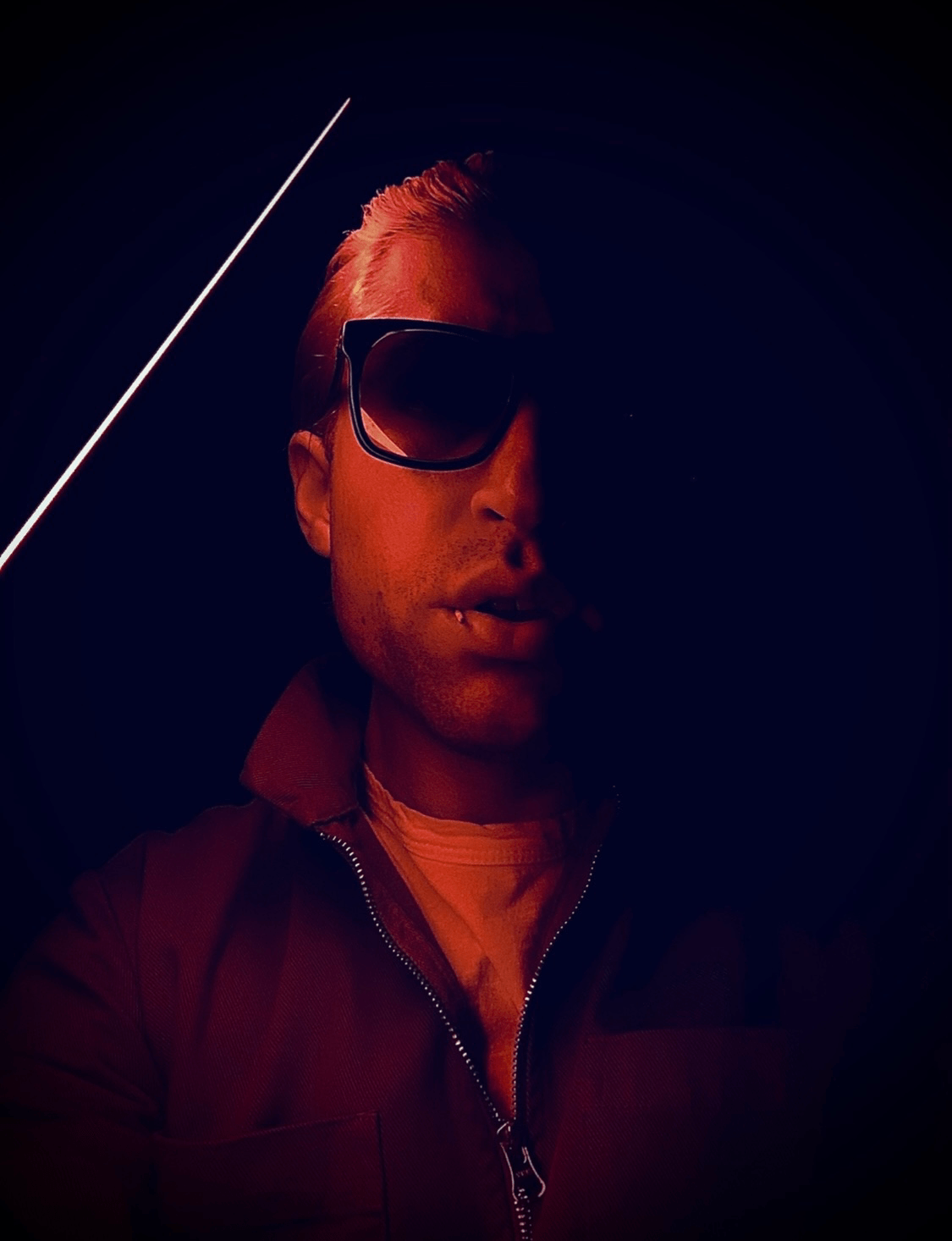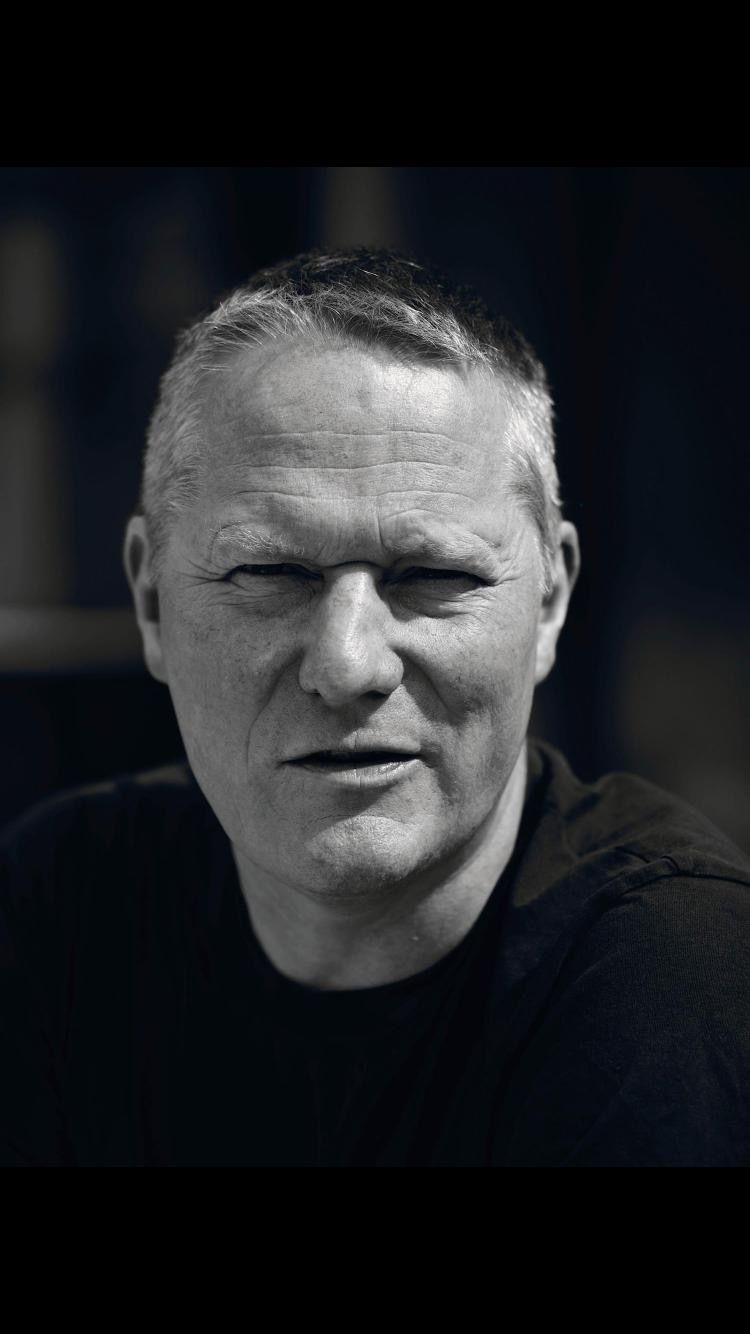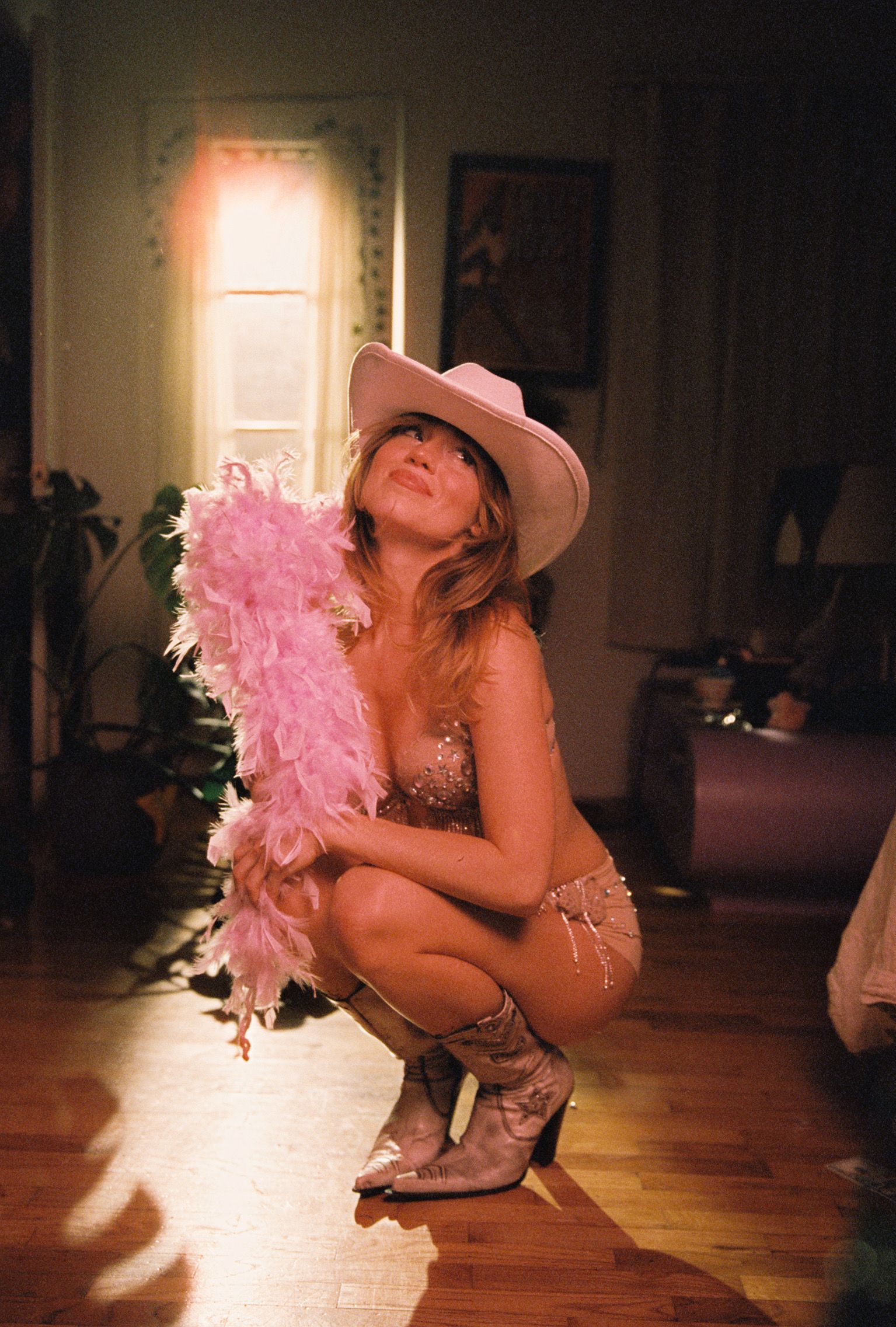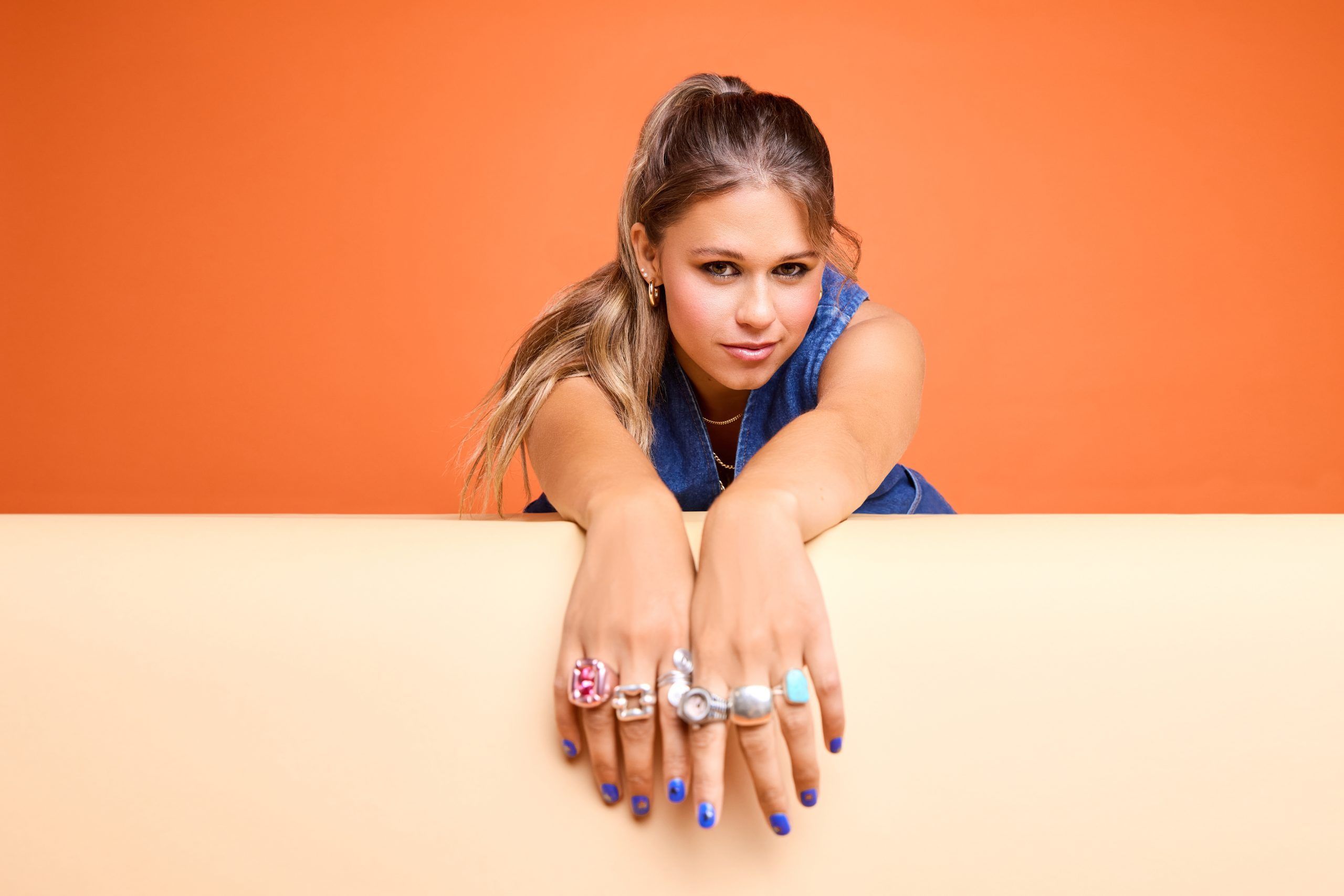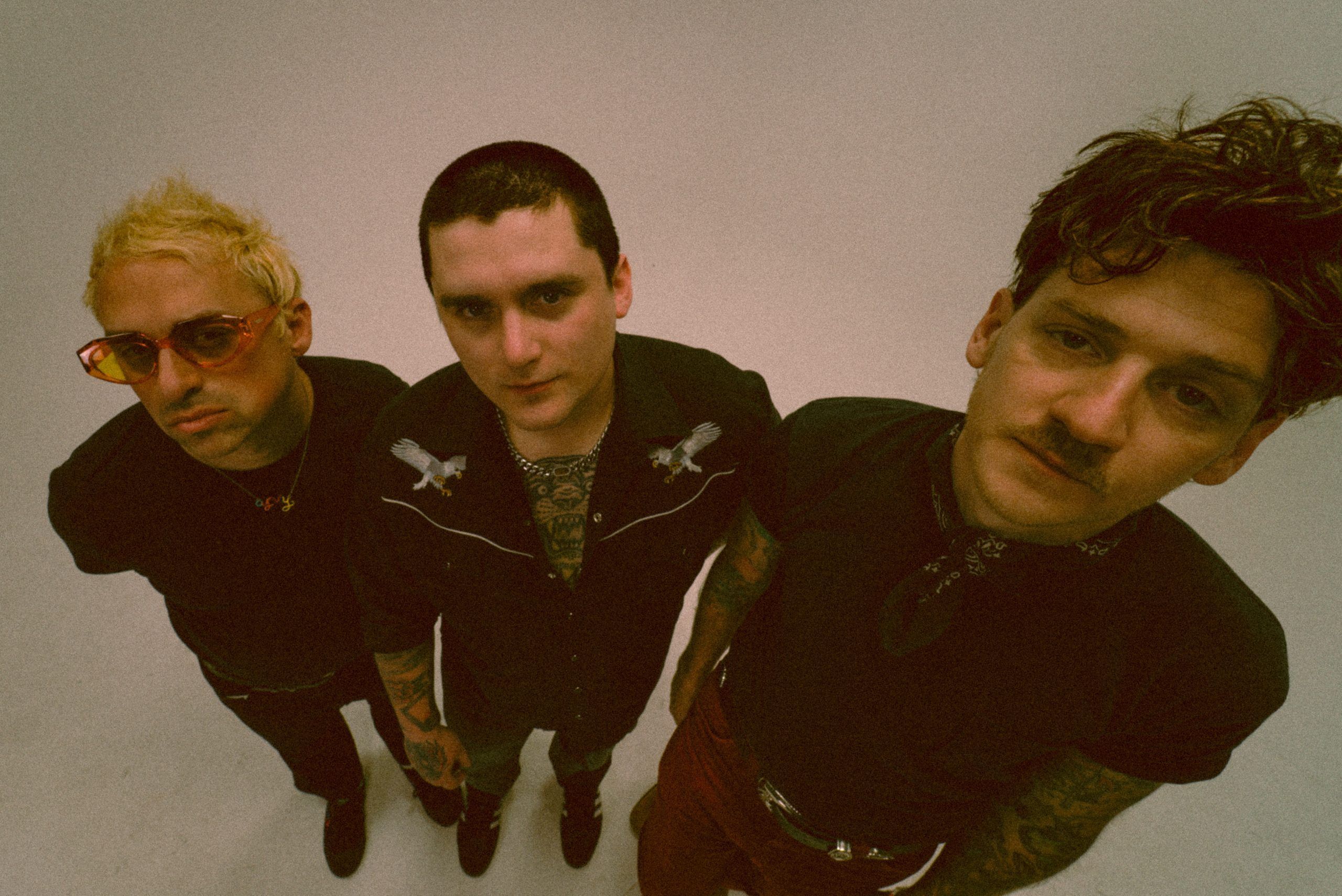LA’s Michael Shuman further cements his status as a creative force on his new solo project, GLU.
Since the age of seven, Michael Shuman better known as Mikey, has devoted his life to music. Throughout his unwavering commitment to the art form over the years, Shuman has gained a reputation as a gifted and versatile musician over the years. You may know the songwriter as the bassist of the rock band Queens Of The Stoneage (QOTSA) since he joined the group in 2007, via his work in the more experimental pop group Mini Mansions, or through his film scoring work. No matter what project Shuman turns his hand to, his talent is undeniable. The American’s latest musical endeavour is in the form of a solo project entitled GLU. It’s a thrilling project that sees the artist traverse elements of indie and hip-hop. Clearly, GLU is a lyrically darker project, his new single NIGHT SHIFT which is out today, blends together driving pop sounds, angular guitars, and vocal flows with lyricism about impending doom and existential feelings. Yet GLU also offers the multi-instrumentalist a sense of freedom that his other projects don’t afford him but it also comes with new challenges. For the live aspect of GLU which Mikey launched via a baptism of fire earlier this year by playing a free four-night residency in London, he’s learnt and developed his artistry and stage presence by just getting out there and playing. Undoubtedly since the release of the initial single COLD SWEAT and now the sophomore single NIGHT SHIFT, GLU is proving to be a refreshing and intriguing experience.
In conversation with 1883 Magazine’s Cameron Poole, Michael Shuman discussed the songwriting process for GLU, the live aspect of the artist project, and whether collaborations can be a double-edged sword.
Mikey, your new single NIGHT SHIFT is out now. As someone who produces and plays all the instruments in your solo projects, I’m keen to know how you found having a computer as the first port of call rather than starting on a guitar riff or another sonic element first when it comes to songwriting. You purposefully wanted to start the creative process differently with GLU…
Throughout my whole life, I’ve always started with a guitar and a riff. [For GLU] I was just like “I’m 37-years-old, what can I do that’s different, what’s challenging to me? What’s going to scare me?” Going to the computer firstly was a challenge but it also opened up new worlds creatively because you’re like “wow, this is brand new to me, I can do this or how do I learn this”. Learning new skills was the coolest part of this project for me. I always think doing something that scares you is the best thing possible to progress as a songwriter, producer, and as a human being. I really enjoyed the process and I’m still learning more which is so fun. I feel like I have a new world to explore and that is really exciting for the next tunes I write and record.
Sure, you’re always learning new things everyday when it comes to music and production. I’m a fan of the DAW Logic Pro but there’s so many out there. Was the recording of the GLU tracks so far a completely digital process for you then or do you still get into a studio?
I use Logic, that’s the DAW I use now. I used to be a Pro Tools guy but now I use Logic which is really useful for songwriting and creating. I do also have a studio in my house that I built, so the process is kind of half-computer and half-real-analogue-gear. The beats and a lot of the keyboard stuff were all made on the computer. But I wanted to make sure there were real elements as well, so guitars going through amps and real drums, for example. I wanted those studio elements to be on top of that.
For GLU, my thought process was like, “How can I have this new school of thought whilst retaining some of the things/skills I’ve worked on since I was seven-years-old. How can I mix these worlds?”. That was my process, starting on a computer and then getting into the studio and having guitar and piano in my hands.
Thank you for sharing. Just out of curiosity you have two tracks out so far, COLD SWEAT and the new single NIGHT SHIFT were these written in quick succession? Or were they written over a lengthy period of time?
To be honest, these songs rolled out really quickly. Once I had MY DEMONS [a live fan favourite that hasn’t been released yet] written which was the first GLU track, the other tracks only took like two days, I thought “I’m gonna try something different” and within a couple of days I was like “Oh okay, this works” and because everything was working so quickly, I just started rolling out these other tunes. I took some music ideas I already had, like some recorded guitar elements or whatever, and I knew I could use them in a song. So the tracks came quickly.
But the one thing that I guess I took the most time with was the lyrics and delivering them in this new way that I haven’t really done before. I wanted to make sure it was done right and that I wasn’t going to come across as cheesy or fake or like I’m trying to play a character. I wanted to make sure it felt like me and still came from me. From the beginning of this project, I thought “okay, I’m a 37-year-old white male, how do I deliver these lyrics in a way that feels natural and organic”. So the delivery was the one thing I did work on a lot.
In a nutshell, what do you get artistically from this indie/hip-hop-led project that you don’t get from the other musical ventures you’re a part of?
I don’t really know specifically what I get from this but the live aspect I give a lot to it. For GLU, I’m always at the mic, the biggest part of it is the vocals and they’re definitely the main focus of the project. I’ve never been so strapped to the microphone so much before in my life. I also get to enjoy the challenge of learning how to command the stage and room in a different way. It’s been a really cool learning process for me because I think by doing this hip-hop thing I get to say more, things I was never able to say in a ballad or punk-rock song which wouldn’t be right, so now I have the chance to say a lot of shit. I grew up on a lot of hip-hop in the skateboarding world and in Los Angeles. The way I speak with my friends feels very natural to me so I guess I can be myself more in GLU, so that’s pretty great.
Back in June, you spent some time in the UK and performed a free four-night headline residency at The Seabright Arms in London. Since this was the first initial couple of shows for GLU and a completely new project for audiences to experience. Would you say you enjoy the unpredictable spontaneity and intimacy that GLU affords you? In terms of live shows, you get to play very small intimate venues which must be amazing and you don’t know how many people will turn up but with Mini Mansions or QOTSA, you know your audience and the level of crowds you’ll pull in…
It’s kind of in line with why I did this project and the creative part of it. The anxiety, some of the fear, and challenges that come with the writing process also come with the live aspect because I’m vulnerable and don’t know if three or three-hundred people are going to turn up to the shows. But I’m okay with that and being humbled by that feels really good. I didn’t want to charge anybody because I just want to play people some music, I don’t really care about the money I just want people there. I want people to see it and start to understand what I’m doing.
Also being by myself/solo means I get to do things the way I want to. I love to rehearse a lot, so where other bands might be like “okay, we’ve done enough sessions”, I can do it whenever I want, however many times I want and so I love that.
A little bit more on the live aspect of GLU, Obviously, since June you’ve played a fair few shows and you’ve got the forthcoming headline UK tour in December. I appreciate that as you’ve been performing for a long time now you don’t get nervous. Interestingly you’ve said that you actually felt a daunting feeling with these shows. But going back to what you just said about being on stage solo. How have you intentionally developed your stage presence? As you’ve had to obviously do a lot more and all eyes are on you.
It’s very vulnerable because with my bands you can rely on someone else or something you’re playing or singing won’t necessarily be the main focus because there are so many other things going on. So To have every nuance–every little thing–be extremely important with what you’re doing is scary. I was nervous for the first few GLU shows, to be honest. I’m never really nervous, but I was. I thought “are people going to accept this and accept me? Will fans that I’ve had for years be into it?” or are they going to turn away and be like “this sucks” or “this is a joke” or whatever. Everybody wants validation, I think every human does and needs it so that was one of the biggest fears, trying to get it back.
I wondered if everything I’ve worked on with these projects so far would come to a halt but I love it now. I’m strapped to the mic so much, there’s so many vocal and lyrical elements going on that I wouldn’t really get a chance to turn around and interact with a drummer or a bass player or whatever–It’s not actually weird in that regard–you just don’t even get a chance to because you’re strapped to the mic, so that’s cool.
I had a chat with your friend Miles Kane late last year for 1883 and I brought film scoring up and hypothetically having a track of his on the long-rumoured Scarface reboot as he’s a big fan of the film. As you’ve previously soundtracked 2017 American drama Feed and also contributed to the soundtrack of the videogame, Grand Theft Auto V for example. In a similar vein to Kane’s question, if you could have a GLU song or compose the entire soundtrack to one of your favourite films – what track would you pick and what film would you pick?
That’s a good question but it’s a tough one. I’ve done maybe four features on the scoring side. It’s such a different thing because you’re not writing for yourself. You’re writing for the scene, character, mood, and emotion. Whereas with your songs, you’re writing for yourself so it’s a much different process. It’s almost like I can’t answer the question because I just think they’re completely different things and that’s why I actually love scoring because you get to not be yourself. You’re not worried about yourself, you’re working for the scene, the director and their vision. Whereas when I do my music, it’s my vision for myself. I can’t really think of a movie right now but I hope that answers the question because I actually think they’re totally different so I don’t know if I could pick something.
No problem! Anyway, I saw an interview you did a few months back where you spoke about how one of the hardest things to do as a new artist is getting your music in front of the right people. Thus, you decided to just get out and tour, so people could hear the music. Another way of getting music out there is via collaborations. But do you think collaborations are somewhat of a double-edged sword or can be? They can help elevate the piece of music but then some fans may expect you to bring out guests all the time at shows. I’m only mentioning this as I know there may be some surprises in the future for GLU in terms of collaborations, and in the past for your Mini Mansions project, the track Vertigo comes to mind…
Collaborations can be. It’s been a double-edged sword for me kind of for my whole career, especially with Mini Mansions where it was being looked at as a side project because I am in Queens Of The Stone Age. That was tough and we could never get away from that label of ‘side project’. It’s sort of the same thing with collaborations, you can gain so much. We did gain a lot of fans by having Alex [Turner] on Vertigo but at the same time, it wasn’t a marketing ploy and what I do with GLU now is not a marketing ploy either. If I have guest vocals on GLU, it’s because I’m literally doing every little bit of this project and I think the music can lend itself to having other vocals on it.
We kind of treated Vertigo like it was in some alternate universe, it was a hip-hop song where Alex comes in for the second verse and he’s the rapper that’s featuring on the song. I’m treating GLU the same way where maybe I’ll sing all the verses and then someone else will come and sing the choruses to bring some new life to the tracks. Whether collaborations help or hinder I’m not really sure but when I’m writing or recording music, I’m not really concerned about that sort of thing. I’m just doing whatever is best for the song. Then whatever comes after, I guess is other people’s job to market it the right way and put it out the right way. All I can do is make the music I want to make.
I do really like that you’ve been giving this project a proper baptism of fire by getting out there and doing all these shows whether it’s the London shows, the current support tour with Blood Red Shoes or the forthcoming LA show and UK December dates. From doing all these performances you’ll be constantly developing yourself. You must learn so much during each individual show, like the fine-tuning of the live mix and more…
Totally, that’s why I did the London residency, it was the same venue. So I could really take a lot from that run of shows and really learnt from them. When it comes down to the lighting and all those little details, they are really important to me. So to do all that without everyone you know or all of your musical peers in front of you is the easier way to do it. That’s why I held off on the LA.
Although on the first night of the London residency I got a text from Mike from Royal Blood saying “I’m here” and I was like “okay, great, my first show ever and my friends and peers will see me fall flat on my face”. Luckily I didn’t but I guess that’s why I’ve been doing it the way I’ve been doing it. It was a fun learning experience.
I’m glad it’s all been going well so far. I know you may not be able to say much or have to stay tight-lipped about things but as it’s nearly 2023, is there anything you can share about what fans can expect from GLU next year?
There are a couple more songs to be released following on from NIGHT SHIFT. As the singles roll out, it will lead to a bigger release.
Finally, you’ve been involved in music from the age of seven-years-old! Looking back on your career so far, are there any key experiences or moments that you are eternally grateful for that you think have made you better as an artist in any way?
Yeah, I think you can get pretty jaded when you’ve been doing this for so long and you’ve had so many experiences. I’ve always tried to stay humble and learn from every experience whether it’s a recording session with someone new or being on the road and learning from another band, how they do things, and how a certain ship operates. I think I’ve always kept my eye and ears open to learn from that but I started playing when I was seven, did my first show in a club when I was eleven but turning 21 and joining Queens Of The Stone Age was definitely the biggest turning point in my life. Everything has come from that. Being so young and having your mind so fresh, it was definitely the biggest thing that has changed over the years.
NIGHT SHIFT is out now. Follow GLU @glu_insta // follow Michael Shuman @mikeyshoesss
Interview by Cameron Poole

